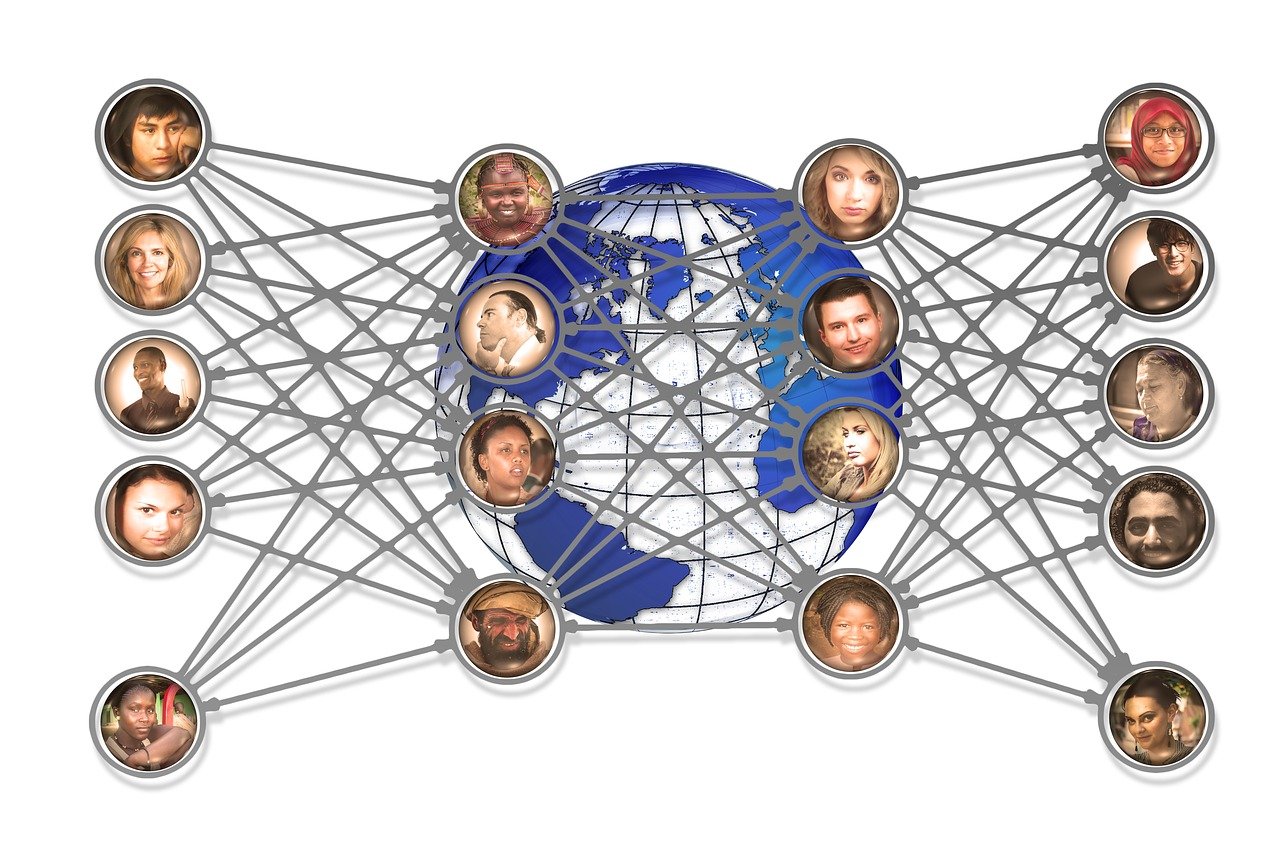
The Intricacies of Game Localization: How Cultural Adaptations Enhance the Gaming Experience
In the rapidly evolving world of video games, localization has emerged as a crucial factor in determining a game’s global success. As gaming transcends borders, the need to adapt content to resonate with diverse audiences becomes ever more paramount. Localization goes beyond mere translation. It involves a series of cultural adaptations that enhance the player’s experience, making them feel at home within the game’s universe. This article delves into the complexities of game localization and explores how these cultural nuances significantly improve the gaming experience.
Understanding Game Localization
Game localization is the process of adapting a video game for different regions and cultures. It involves translating text, adjusting graphics, modifying cultural references, and even changing user interfaces to suit local tastes. Unlike simple translation, localization is a comprehensive process that seeks to preserve the game’s original essence while ensuring it resonates with a target audience.
The importance of localization cannot be overstated. As the gaming industry expands, so does its audience. Players from various cultural backgrounds expect games to reflect their languages and customs. Effective localization can significantly boost a game’s reception in new markets, enhancing its global appeal and financial success.
The Role of Cultural Adaptations
Cultural adaptations in game localization involve altering content to align with the social norms, values, and expectations of a specific region. This might include changing character names, modifying storylines, or adjusting visual elements to avoid offending local sensibilities. These adaptations are crucial for maintaining a game’s authenticity and engaging players on a deeper emotional level.
For example, consider the portrayal of historical events in games. A game set in a historical context may need to alter certain aspects to avoid political sensitivities. Similarly, religious symbols and themes might require adjustments to respect local beliefs. By addressing these cultural aspects, developers ensure their games are inclusive and respectful of diverse audiences.

Challenges in Game Localization
While localization offers numerous benefits, it also presents several challenges. One of the primary challenges is balancing the need for cultural adaptation with preserving the game’s original intent and atmosphere. Developers must tread carefully to avoid alienating their core audience while making the game accessible to new players.
Another challenge is the sheer scale of localization efforts. Games often contain vast amounts of text, dialogue, and audio, all of which require meticulous translation and adaptation. This process demands skilled linguists, cultural experts, and a deep understanding of both the source and target cultures.
Successful Examples of Game Localization
Numerous games have successfully navigated the challenges of localization, setting benchmarks for others to follow. One notable example is the “Final Fantasy” series. Known for its rich storytelling and complex characters, the series has been effectively localized across multiple languages, ensuring players worldwide can enjoy its narrative depth.
Another example is “The Witcher 3: Wild Hunt,” which was praised for its localization efforts, particularly in non-English-speaking regions. The developers’ commitment to maintaining the game’s Slavic roots while adapting it for a global audience is a testament to the power of thoughtful localization.
The Future of Game Localization
The future of game localization is bright, driven by technological advancements and an ever-growing global audience. Machine translation tools, such as AI-driven language processors, are increasingly being used to streamline the localization process. However, the human touch remains indispensable, as cultural nuances often require a level of understanding that technology alone cannot provide.
As more gaming companies recognize the importance of localization, we can expect to see a continued emphasis on culturally adaptive content. This trend will likely lead to a more inclusive gaming landscape, where players from all corners of the world can enjoy experiences tailored to their cultural contexts.
Takeaways

Game localization is a complex, multifaceted process that goes beyond translation to involve deep cultural adaptations. These adaptations enhance the gaming experience by making it more relatable and engaging for diverse audiences. As the gaming industry continues to grow, the role of localization becomes increasingly critical in ensuring a game’s global success.
By understanding the intricacies of localization and embracing cultural diversity, developers can create games that resonate with players worldwide. This not only enriches the gaming experience but also fosters a more inclusive and connected global community. For more insights into the significance of cultural adaptations, visit the International Game Developers Association.
Ultimately, as the industry evolves, the importance of localization will only increase, paving the way for even more culturally rich and immersive gaming experiences. Learn more about how localization strategies are shaping the future of gaming by exploring resources from the GamesIndustry.biz.
Integrating Feedback for Continual Improvement
One of the key aspects of successful game localization is the continual feedback loop between developers and their audience. Players are often eager to share their experiences and insights, which can provide invaluable information for refining localization efforts. By actively seeking out and integrating player feedback, developers can make informed decisions that further enhance cultural relevance and inclusivity.
Community forums, social media platforms, and dedicated feedback channels serve as vital resources for gathering player opinions. Listening to these voices allows developers to address any oversights or misunderstandings that may have occurred during the initial localization process. This ongoing dialogue helps maintain a strong connection between the developers and their global audience, ensuring that the game continues to evolve in harmony with its diverse player base.
Localization Beyond Language: Audio and Visual Elements

While much focus is placed on the textual aspects of localization, audio and visual elements are equally important in creating an authentic experience. Voice acting, in particular, plays a critical role in conveying the emotional depth of characters and the story. Localizing voiceovers involves casting appropriate voice actors who can deliver performances that resonate with the target audience while maintaining the original intent of the characters.
Visual adaptations may include altering character designs, costumes, and even in-game symbols to better align with cultural expectations. For instance, some regions have specific guidelines around the depiction of violence or suggestive content, necessitating adjustments to comply with local regulations. By considering these elements, developers can create a visually and audibly cohesive experience that appeals to players worldwide.
Case Study: Localization in Mobile Gaming
Mobile gaming represents a unique segment of the industry where localization plays a pivotal role in reaching a broad audience. The global nature of mobile platforms, combined with the accessibility of smartphones, means that games can quickly become popular in regions far from their origin. This necessitates a robust localization strategy tailored to the mobile gaming audience.
A successful example of mobile game localization is “Clash of Clans,” which achieved widespread popularity through meticulous adaptation. The game’s developers invested in understanding the cultural preferences of different regions, resulting in tailored versions that resonated with local players. This approach not only boosted the game’s global appeal but also reinforced the importance of strategic localization in mobile gaming.
Educational Initiatives in Localization
As the demand for skilled localization professionals grows, educational initiatives have emerged to nurture talent in this field. Various universities and institutions offer specialized courses and programs focused on game localization, providing aspiring professionals with the knowledge and skills needed to excel in this dynamic industry.
These programs cover a wide range of topics, from linguistic proficiency to cultural studies and technical skills required for localization tools. By fostering a new generation of localization experts, these educational initiatives contribute to the continued growth and innovation within the gaming industry.

Conclusion: Embracing the Power of Localization
In conclusion, the intricacies of game localization underscore its importance in shaping a global gaming experience that is both engaging and culturally relevant. By embracing cultural adaptations, developers can create games that transcend language barriers and resonate with players from diverse backgrounds. The future of gaming lies in its ability to connect individuals across the world, and localization is the bridge that makes this connection possible.
As we look ahead, the gaming industry must continue to prioritize localization efforts, recognizing the profound impact they have on the player experience. For more information on the evolving role of localization in gaming, consider exploring resources from the Localization World Conference. By doing so, developers can harness the power of localization to craft truly immersive and inclusive gaming experiences for all.
The Economic Impact of Game Localization
Beyond its cultural significance, game localization also has a substantial economic impact. By making games accessible to a wider audience, developers can tap into new markets and revenue streams. This expansion can significantly enhance a game’s profitability and longevity, turning regional successes into global phenomena.
According to a report by Statista, the global gaming market is projected to reach hundreds of billions of dollars in the coming years. Localization plays a crucial role in this growth, enabling developers to reach players in emerging markets such as Southeast Asia, Latin America, and Africa. By investing in localization, developers not only increase their potential customer base but also contribute to the overall growth of the gaming industry.
Technological Advances in Localization
Technological advancements continue to reshape the landscape of game localization. Machine learning and artificial intelligence are becoming indispensable tools for automating parts of the localization process. These technologies can assist with initial translations, allowing human localizers to focus on the more nuanced cultural adaptations.

Moreover, cloud-based localization platforms provide developers with collaborative environments where teams from different parts of the world can work together seamlessly. This global collaboration ensures that localization efforts are both efficient and culturally informed. As these technologies evolve, they promise to further streamline the localization process, making it more accessible to developers of all sizes.
The Community’s Role in Localization
Community-driven localization is another emerging trend, where players themselves contribute to the localization effort. This approach leverages the passion and knowledge of dedicated fans who are eager to see their favorite games succeed in their native languages. Platforms like Steam Workshop and other community forums allow players to create and share localization mods, fostering a sense of ownership and engagement within the gaming community.
While community localization presents certain challenges, such as maintaining consistency and quality, it offers a unique opportunity to involve players directly in the development process. This collaborative model not only enriches the player experience but also strengthens the bond between developers and their audiences.
Final Reflections on Game Localization
The intricacies of game localization highlight its indispensable role in the modern gaming industry. As developers strive to create games that resonate with a global audience, the importance of cultural adaptations becomes increasingly clear. By understanding and embracing the nuances of different cultures, games can achieve a level of engagement and inclusivity that transcends geographical boundaries.
Looking forward, the continued evolution of localization practices will undoubtedly shape the future of gaming. By staying attuned to the needs and preferences of diverse player communities, developers can ensure that their games not only entertain but also connect and inspire players worldwide. For those interested in the broader implications of localization, resources from the Translators Without Borders offer a wealth of information on the transformative power of language and culture in global communication.






